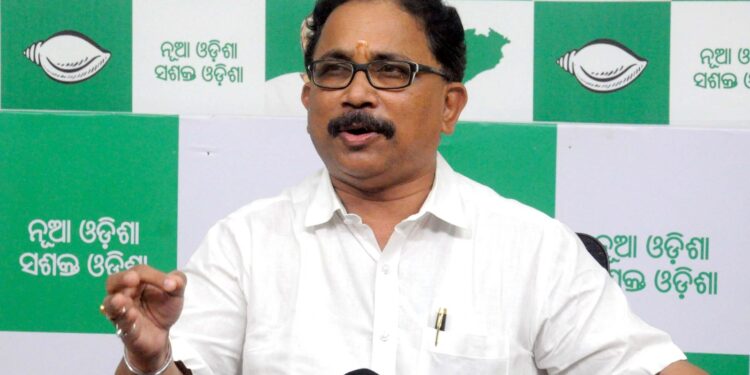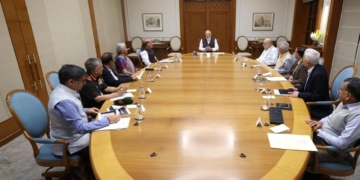The Biju Janata Dal (BJD) has sharply criticised the Odisha state government’s response to the ongoing fertiliser supply crisis, labelling it a reactive move prompted only by pressure from party president and Leader of Opposition (LoP) Naveen Patnaik.
In a press briefing held today in Bhubaneswar, BJD Spokesperson and Media Coordinator Lenin Mohanty accused the government of belated action, asserting that its measures fall short of addressing the severe distress faced by lakhs of farmers across the state.
The controversy erupted following Patnaik’s letter to Union Minister for Chemicals and Fertilisers Jagat Prakash Nadda on August 30, 2025, urging immediate intervention to tackle the urea shortage threatening the kharif season. Mohanty emphasised that the state government’s response, detailed in a press release from the Chief Minister’s Office, was a direct result of this political nudge, highlighting a lack of proactive governance.
“The measures announced appear too little, too late to address the gravity of the situation on the ground,” Mohanty stated, echoing the BJD’s stance that farmers deserve strategic planning and timely input delivery rather than “last-minute firefighting.”
The fertiliser crisis has sparked widespread concern, with reports of black marketing and inflated prices—urea bags selling at ₹700-800 against the government-fixed rate of ₹270—further aggravating farmers’ plight. The BJD’s critique aligns with Patnaik’s earlier warnings about supply chain mismanagement and the delayed operationalisation of the Talcher fertiliser plant, which remains non-functional seven years after its foundation in 2018. These issues, compounded by India’s 95% reliance on imported speciality fertilisers, as noted by The Economic Times, have intensified the urgency of the situation.
During his 24-year tenure as Chief Minister (2000-2024), Patnaik’s administration prioritised farmer welfare, allocating a ₹1 trillion subsidy budget for fertilisers in 2022-23. Now in opposition, the BJD continues to leverage this legacy, reaffirming its commitment to stand with Odisha’s farming community. Mohanty reiterated the party’s demand for sustained, effective measures to safeguard farmers’ livelihoods, a call that resonates amid global warnings from the USDA-FAS about potential fertiliser shortages impacting India’s winter crops.
As the state government scrambles to address the crisis, political analysts suggest that the BJD’s pressure could force more robust action. However, with the kharif season in full swing and farmers protesting across a few districts, the effectiveness of the current measures remains under scrutiny. The coming days will be critical as Odisha balances political rhetoric with the pressing needs of its agrarian backbone.






























